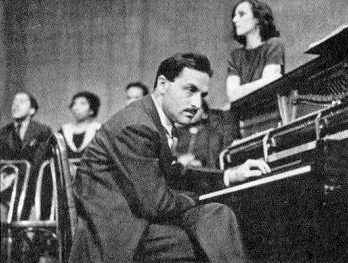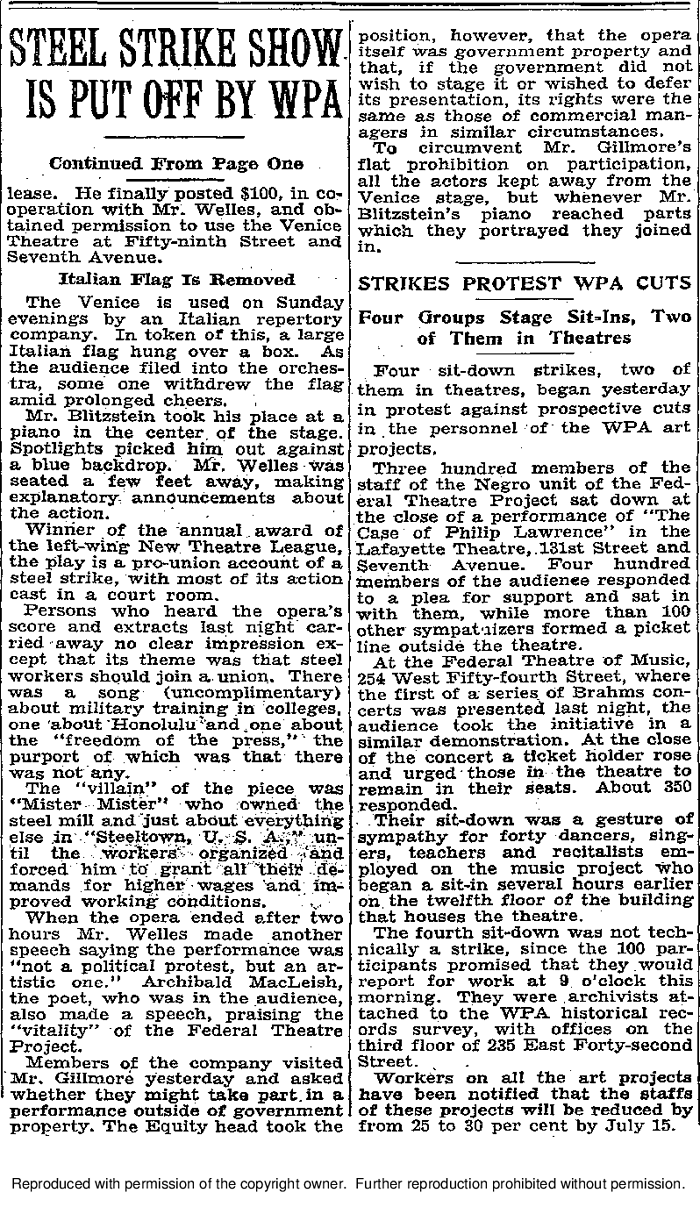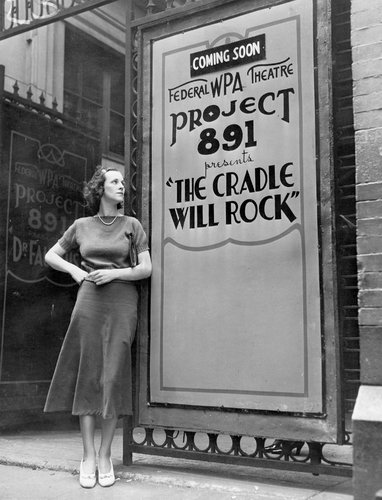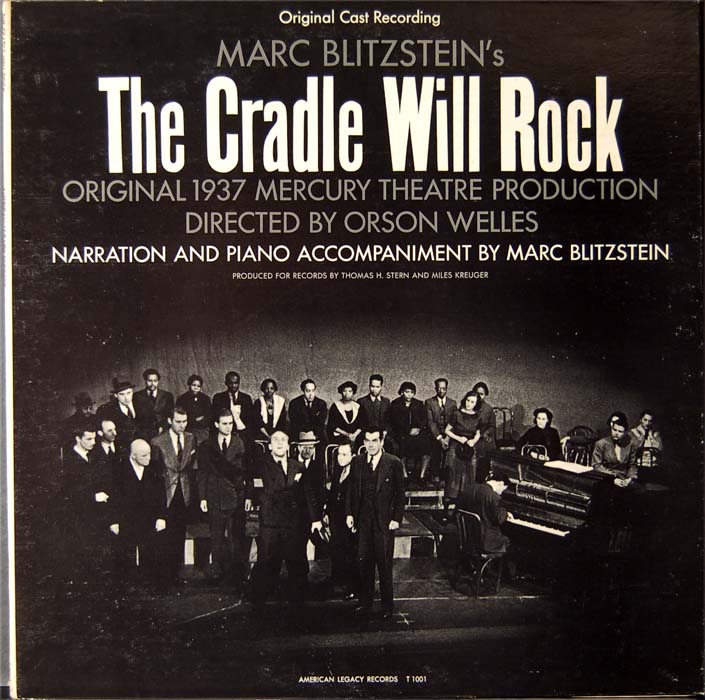Among the many works of 20th century opera that Opera Think Tank researched for this series, one of the most fascinating and shocking was Marc Blizstein's The Cradle Will Rock.
In a way, the piece is a social movement, inside of a musical, inside of a historical turning point in politics and theatre. Not only are the real events surrounding its opening night bizarre and convoluted, but the political kaleidoscope of capitalists, socialists, fascists, communists, freedom-fighters, union members, and New Deal government workers demonstrated in the piece and in real life is enough to draw a diagram of practically every political philosophy in existence. Tim Robbins dramatized the piece and the conflicted world in which it premiered in a star studded 1999 movie.
Blitzstein called it a "labor-opera" and it was revived in 1960 with full orchestra and opera singers by the New York City Opera. That same decade, it was revived on Broadway, though like most Broadway revivals since, only a lone piano accompanied the singing actors.
 |
| Composer Marc Blitzstein at the piano |
It's not surprising that a lot of directors found this piece exciting to dream on, so we have two posts on the piece.
The first is below, from director Corinne Hayes, an emerging talent whose work has been seen at Marble City Opera, Central City Opera, and Opera North among others, and she has served as Assistant Director at companies such as Wolf Trap Opera Company and Dallas Opera.
--
"Well, you can’t climb down and you can’t sit still…"
 |
| Union Protests in Madison |
Labor struggles are at the fore of hot button news stories throughout the country—Scott Walker’s adversarial approach to teachers’ unions, Occupy Wall Street’s outcry against corporate greed, and, closer to home for many of us, the recent labor disputes at the Metropolitan Opera. Agree or disagree, the human value of labor is constantly being called into question—a question that results in lockouts and Right to Work, or, with patience and goodwill, in compromise and a renewed sense of shared purpose.
The Cradle Will Rock sprang from a sweeping folio of reforms known as The New Deal—a mix of legislation and executive orders intended to put struggling Americans back to work following the stock market crash of 1929. From the pen of Marc Blitzstein, the eye of Orson Welles, and the pocketbook of the federal government, The Cradle Will Rock is aggressively pro-union, calling for the spectator to rally behind Larry Foreman and rise up against Mr. Mister (otherwise known as “The Man”).
Nearing its 80th birthday, Cradle’s jazz-inflected tunes and unsentimental language resonate with a peculiar immediacy as the gulf between "them and us" grows ever wider.
A bit of backstory: Shortly before Cradle was scheduled to open on Broadway, the Works Progress Administration shut down the project. To avoid restrictions enacted by both the federal government and Actor’s Equity, Blitzstein and company opened the show with a single performer onstage—Blitzstein himself, serving as pianist and ersatz cast member—while the principal cast performed from seats throughout the house.
 |
| Read the original 1937 New York Times report here |
Protest is theater. We perform our grievances, driven by a desire to give them voice. I am reminded of something I witnessed at an Occupy encampment in Washington, D.C.: during an un-amplified speech, the speaker’s words were repeated by the group, to ensure that all in attendance were able to hear. As the people’s microphone took hold, the speaker’s words gained a tangible power, one that energized the group of protestors and gave pause to the bystanders.
 |
| Occupy Wall Street Protesters |
I see The Cradle Will Rock as a rallying point, a means to both unify and amplify. Imagine Cradle on the steps of the Wisconsin state capitol, on the grass of Zuccotti Park, in the streets of Steeltown, USA. Broken into vignettes, the piece is inherently flexible in its presentation: archetypal characters play out episodes addressing corruption, prostitution (in its many guises), labor issues, laced through with a growing belief in the possibility of positive change.
Pull Cradle apart. Present Moll to the women's club and Editor Daily to the mainstream press. Pull it out of the theater, scatter the piece through the community, turn its songs into rallying cries.
If nothing else, The Cradle Will Rock is art meant to work. No lights, no costumes, no opening night gala—just a group of people driven by a common vision, out to do nothing more than change the world.
Learn more about Corinne Hayes's work at www.corinnehayes.com



No comments:
Post a Comment